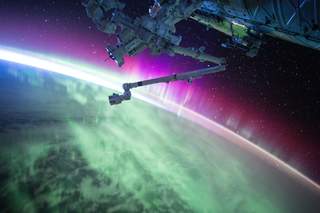
© Unsplash/NASA
New Space is becoming increasingly important for German industry
Space travel is a cross-sectoral growth and innovation driver and contributes significantly to increasing the competitiveness of Germany as a business location, to the creation of high-quality jobs and to social prosperity. An increasingly data-based and networked industrial and information society is dependent on having self-determined access to critical infrastructures and services at all times. New Space describes the increasing commercialisation of space combined with an increasing dovetailing with the non-space industry. "New Space is the key to future technologies such as autonomous driving, Industry 4.0 or fast global internet" explains Matthias Wachter, BDI (Federal Association of German Industry) Head of Department for International Cooperation, Security, Raw Materials and Space Travel.
“New Space companies help the German economy to expand these important growth areas and other data-based business models.“
Space travel is gaining importance in numerous sectors
The “New Space Industry Report“ recently produced by the Berlin-based research company Capitol Momentum with the support of the BDI confirms that space travel and the New Space ecosystem in Germany continue to gain in importance for industry as a whole. Already today, 76 per cent of the 125 New Space companies based in Germany have national and international customers from traditional industry, that is, from the non-space sector. So far, these include the areas of agriculture, logistics and transport, the insurance industry, the energy sector or the pharmaceutical industry with business models for forest and vegetation management, infrastructure monitoring or precision agriculture (smart farming), for example. “New Space is thus becoming increasingly important for Germany as an industrial and export country,“ says Wachter.
New Space also plays a prominent role for cross-sectoral goals such as the Green Deal or the achievement of the Sustainable Development Goals (SDGs): Satellite-based applications make indispensable contributions to the close monitoring of the environment and climate and to the careful use of scarce resources, environmentally soundly and sustainably. Forest fire monitoring from space or the application of water, seeds and fertiliser to fields with centimetre precision are just two of the numerous possible applications in the New Space sector.
The interplay between New Space and traditional industry holds immense potential and will continue to gain in importance in view of the future challenges of our global economy. New Space and especially cross-sectoral cooperation foster innovation and make our economy and society more digital, secure and sustainable.



